War and elections. Which victory is more important?
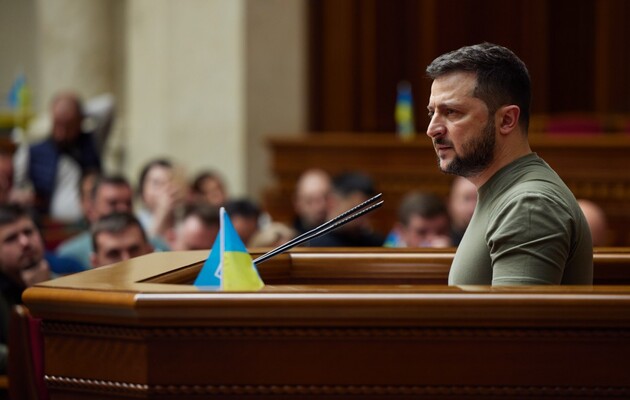
If martial law continues, there will be no parliamentary elections in Ukraine in the fall. President Volodymyr Zelenskyy stated this in an interview with The Washington Post. Thus putting an end to a key topic that is important for maintaining his power.
In fact, the thoughts of elections do not leave officials working on Bankova Street and political parties during the entire period of full-scale war. However, if various political parties whose strategies are not so vividly presented during the «Yedyni Novyny» marathon do not have any influence on the decision on the date of the parliamentary elections, then political figures on Bankova Street are in a constant creative search for the decision to hold the elections. The political figures who are currently in power are trying to seize the moment to effectively restart and secure themselves in power for another five years. It is hardly possible to think of a better period to implement this plan than the present one, when society is mostly fed up and annoyed with the old politicians, and new political forces have not yet been born.
Parliamentarians who work on Bankova Street, still have no intention of giving up the idea of taking advantage of this unique situation, when it seems that many implementations and decisions are not relevant from a political point of view. In addition, now the ruling political party is alone in the political arena of the country, and when asked to comment on its main miscalculations, its representatives answer "it is not yet relevant and not necessary." The president's associates are only concerned about when to hold elections: in time, thus interrupting the martial law (and this is a legal possibility after August 18), or is it still better to wait for the end of the war.
Yesterday, according to our information, representatives of the Office of the President of Ukraine decided to choose an option for holding regular parliamentary elections on October 29. However, already today, after Zelensky's statement, this scenario is again in the status of "But this decision is not yet final." And the appeal of potential new leaders to commanders "Get ready to become people’s deputies!" went into temporary standby mode again. As well as the experiences of those honorable representatives of the "Servant of the People" party who, as a result of the reboot, hope to find themselves again in the post-election power project, but do not find "the Chairman of the Verkhovna Rada of Ukraine – Shmyhal, the Constitutional Court of Ukraine – Stefanchuk, the Prime Minister of Ukraine – Svyrydenko" in the draft scenario.
And this instability can be understood. Today, it does not matter for a Ukrainian where he is – whether in the trenches, or in the rear, or in the chair of the Supreme Commander of Ukraine – it is quite difficult for this person to put sharp-angled puzzles out of the box into a single scheme: the government, the army, society, the West, Russia. Regardless of how this piece of the puzzle is placed, the situation will be the same in all areas, even if it won't hurt, it will definitely be uncomfortable. Thus, the Ukrainian now feels unprotected and uncomfortable in various spheres of social and political life, starting from the electrified expectation of a counteroffensive by the Armed Forces of Ukraine to the negotiations to which Ukraine will obviously be persistently pushed by Western partners based on the results of the counteroffensive.
However, the firm intention of representatives of the Office of the President of Ukraine to remove the current parliament from the game and to obtain a stable majority in the new one (and Zelensky’s trust rating is 85% today) is a mandatory element of the modeling of the political future by politicians working on Bankova Street. The creativity of the president's team, which it demonstrates throughout the term of office, easily stepping over promises and laws, is well known. But war is definitely not the case when you can say one thing, think another, and do the third.
And, as long as public opinion is actively monitored qualitatively and quantitatively by the representatives of the president's office, ZN.UA decided to help the authorities decide. With the help of the sociological service of the Razumkov Center, we directly asked people about their attitude to the elections, to citizens who were either under occupation or are abroad, but will vote from these territories, as well as to possible ways of conducting the elections.
Elections and the majority
Today, out of 240 representatives of the "Servant of the People" party, 180 members consistently vote in the parliament. Among the 60 representatives of this party, there are many absentees, these are people who are ill or have gone on a business trip (there are always up to 20 of them); came out "to smoke" (10-15) plus the Razumkov (15), Kolomoiskyy and Pavlyuk groups (up to 15 people). "In fact, the process of half-disintegration of the faction is taking place," says our source in the leadership of the "Servant of the People " party.
There are several reasons for the majority crisis. First, the war nullified the financial levers of its association. At a certain point, it became easier for politicians on Bankova Street to negotiate with other representatives than to negotiate long and tediously with their own party members. Both with ideological and commercial representatives. And this not only lowers the self-esteem of the deputies, but also greatly extinguishes business acumen and the desire for successful work. Secondly, the upcoming parliamentary elections (and not the war) became a common background for the work in the parliament. Back in February, David Arahamiia gathered the faction and voiced the main introductions. People's Deputies were promised to write off all negatives, to count old merits as a bonus, but full discipline during voting was announced as the basis for getting into the new team. Some 10-15 representatives from the "Servant of the People" party are optimistic and are actively making up for lost time, trying to replenish the list of 140-150 reliable people from this convocation. The rest, realizing that they will most likely not be accepted into the parliament of the new convocation, are actively looking for new opportunities for self-realization.
All this is happening in the context of the policy of completely nullifying the parliament as an independent branch of government. Due to the martial law, the center of decision-making, including the formation of the agenda of the Verkhovna Rada of Ukraine, finally stopped on Bankova Street. Zelenskyy treats people’s deputies like Putin treats Ukrainians. He despises them. The President has a negative attitude towards those people’s deputies who, thanks to his hard work, managed to enter the current composition of the parliament, those whom he fed deliciously and watered... After all, not all of them showed the proper disciplined loyalty, which he, as a father, is the founder of the faction and the Supreme Commander-in-Chief of Ukraine – could expect. On an emotional level, the president wants to punish for treason by reviewing the list of people’s deputies. It is rational to re-consolidate this list, because he knows that the parliament is the key to the Cabinet of Ministers of Ukraine, the Cabinet of Ministers of Ukraine is the key to money and the Armed Forces of Ukraine, and the Armed Forces of Ukraine is a way to reach local authorities for the use of administrative resources in any election campaign.
Therefore, political figures on Bankova Street are subconsciously always ready to turn on the "Start" mode. And make another statement. But is the country ready to start the race?
Choices and risks
Sociologists asked Ukrainians how the authorities should act in a situation of martial law, when, according to the Constitution of Ukraine, no elections are possible. And the vast majority (61.6%) spoke in favor of extending the powers of the current Verkhovna Rada of Ukraine until the end of martial law, no matter how long it lasts. Only 11.7% of the surveyed respondents agree to suspend martial law and hold a shortened election campaign and elections in October 2023. Although, there were enough people who doubted and could not answer this question (26.7%). And even if the number of undecided people moves towards the decision to hold elections, it will not fundamentally change the political and socio-economic situation throughout the country. Most voters do not want to turn the election into a big game.
It is significant that, according to a March poll by the Razumkov Center commissioned by ZN.UA, half of Ukrainians (51%) do not trust the current composition of the parliament. Do not trust, but do not want to change? It turns out that people simply do not see the possibility of electing a new parliament during a full-scale war. What can this be related to? Are they waiting for the birth of new political forces? Perhaps this attitude is related to the fact that during the already difficult times in the country, namely the war, people do not want to undermine the already effectively working political forces? Ukrainians don't want the decision to hold new parliamentary elections to somehow harm the Armed Forces of Ukraine, because during the abolition of martial law, men of military age who would like to leave Ukraine for a long time, but have not yet paved their "path" abroad, will be able to leave Ukraine? Are Ukrainians afraid that the parliamentary elections will be the beginning of pre-election quarrels? Are our compatriots afraid to release a dangerous genie from the lamp that can undermine the already not very stable political situation in the country?
There is another internal trigger in society that forces one to be cautious about elections. No matter how hard it is, the end of martial law and elections imply a ceasefire, and therefore some kind of conditional truce or peace. At least for 61 days.
The key legal point referred to by the president in his statement should be clarified here. The Constitution of Ukraine does not determine the terms of the election campaign, but only the date of the elections and the term of office of the Parliament of Ukraine, namely five years (Article 76). In addition, the Constitution of Ukraine also specifies that if the term of office of the Verkhovna Rada of Ukraine expires during a state of war or a state of emergency, this term must be extended until the first meeting of the first session of the Verkhovna Rada of Ukraine elected after the abolition of the Armed Forces of Ukraine or the Parliamentary Assembly of the Council of Europe (PACE) (Article 83).
Next, the Election Code of Ukraine works. If a separate decision on their appointment is not required to hold the elections (and in our case it is not necessary, because the elections are regular), the Central Election Commission of Ukraine (CECU) notifies about the start of the election campaign no later than one month from the day of termination or cancellation of the Supreme Court of Ukraine or the Parliamentary Assembly of the Council of Europe (PACE) (Article 20). It is worth noting that Article 136 of the Code of Ukraine clarifies that the election process for regular elections of deputies begins sixty days before the voting day.
What are the most important points here? It is important that martial law in our country has been extended until August 18. And if the government announces elections by August 29, it will completely fit into the campaign terms set by law. But even if there are some unforeseen circumstances, politicians can easily make any necessary changes to the law and hold elections on time. That is, it is not a matter of lack of legal possibility, but solely of President Zelensky’s decision.
Undoubtedly, Zelenskyy understands this, and with his statement that there will be no elections during the end of martial law, he gives a signal. But this signal is not even addressed to Ukrainian society as much as it is to Western partners.
According to our survey, 63.9% of Ukrainians do not support direct negotiations with Russia. Almost as many people do not support holding parliamentary elections until the natural cessation of hostilities between the Armed Forces of Ukraine and the Armed Forces of the Russian Federation. Do people intuitively sense connection and danger? And Zelenskyy intuitively feels the mood of people. Since he himself supported these sentiments, not allowing the slightest public communication about possible negotiations.
But the Western media did a good job of getting society excited. In the last month, leading publications reported almost every day that "the war has reached a bloody stalemate" and the negotiations will become "a very bitter pill that Ukraine will have to swallow." Against the background of intense anticipation of the counteroffensive of the Armed Forces of Ukraine and good news about arms deliveries, the Secretary of the National Security and Defense Council of Ukraine (NSDC) Oleksiy Danilov stated: "now a lot of countries have joined the campaign, the goal of which is to bring Ukraine to the negotiating table." That is, do the representatives of many countries mean that the territories that we recapture during the decisive counteroffensive will be ours?
Further, the factor of the influence of the West only strengthens. Yes, its individual representatives have their own interest in both the ceasefire and the holding of parliamentary elections in Ukraine. This is what the President of the Parliamentary Assembly of the Council of Europe (PACEP) Tiny Kox confirmed the other day, saying in an interview with "European Truth" that "Ukraine should hold free and fair elections even under martial law." Despite Zelensky’s statement about the impossibility of such a scenario during the offensive of the Armed Forces of Ukraine. "It is not our task to indicate how to do it, but, of course, Ukraine must organize free and fair elections. Because this is its obligation according to the statute of the Council of Europe. And, of course, Ukrainians will do it," the diplomat emphasized. And Kox is not alone in his vision of a solution to this problem.
It is not only a matter of fatigue of the pro-Ukrainian coalition countries from the war and their internal political processes. According to our sources, the motive for agreeing to elections on time, in the absence of martial law – and the EU will not interfere with parliamentarians on Bankova Street in the event of such a decision – is fundamentally different from the hidden motive of Bankova Street itself, which was considering such an option. If the president's entourage wants to leave Zelenskyy in power for the next five years, the EU does the exact opposite, namely, it wants to prevent this. After all, the politicians of European countries have felt the notes of creeping Kyiv authoritarianism for a long time. During the year of the war, politicians on Bankova Street managed to completely forget about the distribution of power and what political competition is. Which not only the president's entourage, but also the majority of the mass media loyally consider inappropriate during the war.
Moreover, it is unlikely that the war implied complete inactivity and inability of the government to make strategic decisions. However, the desire of the Prime Minister of Ukraine to obey and not take responsibility exceeded all expectations. Ministers formally appointed by the Verkhovna Rada of Ukraine now report not to the parliament, but to the head of the Office of the President of Ukraine, the role of people's deputies has slipped to the level of extras during voting. Politicians in the Office of the President of Ukraine choose representatives of the Cabinet of Ministers of Ukraine at their own discretion. That is, such things as appointments, powers, functions, responsibilities, legality of decision-making are distributed in a chaotic manner, based on the vision of a specific official who is a member of the Office of the President of Ukraine. The framework of the state administration system is cracking loudly. Tactically, at the time of the war, some ministries of Ukraine managed to continue to successfully perform their work, while some found it difficult to perform the functions assigned to them (The Ministry of Digital Transformation successfully dealt with the issue of drones for the Armed Forces of Ukraine, while the Ministry of Defense of Ukraine could not effectively solve this problem, the Ukravtodor or the State Service of Special Communications and Information Protection of Ukraine dealt with the issue of shells, while the Ministry of Strategic Industries of Ukraine could not successfully and effectively solve this task). It is as if the chip with the memory of the instructions for managing the country was removed from the system, and it is not a fact that the authorities will want to look for it after the war.
And no matter how cynical it sounds, the truce itself can unblock the political process in the country, which was suspended by the war and the "Yedyni Novyny" marathon. Zelensky’s unchanged and stable rating is unlikely to stand against the background of society's rejection of peace negotiations and the government's inability to conduct any public communication in this regard. Which, according to some Western diplomats, is a good thing, because it is a way to preserve democracy in Ukraine. And for such a task – in case of victory of this position – foreign donors will definitely find two billion hryvnias, necessary for the operational organization of the election process.
There is only one way – elections, but at the same time two directly opposite goals. But Kox's statement exactly coincides with Zelensky’s comments. Whose option ultimately wins will depend on what happens on the front, and then on what happens at the negotiating table.
Elections and trust
Now two important dimensions. Thus, to the question: "Should voters living in the occupied territories take part in the parliamentary elections", 46.8% of respondents answered positively. While 24.6% found it difficult to answer, and 28.7% of respondents answered that there is no need to hold parliamentary elections yet, because they are not relevant yet. It turns out that almost a third of the respondents on an emotional level have already cut off from themselves/almost cut off from Ukraine the territories occupied after February 24 and the people who live there.
In order to somehow explain this, it is worth clarifying exactly how our respondents treat people who were in the occupied territories after February 24, 2022. Therefore, more than 40% of respondents do not trust them to a greater or lesser extent. Attention now! – the number of those who do not trust people who remained to live in the occupied territories after 2014 is 58.1%. Although the difference in terms of occupation is seven years. The trend is obvious. And this is a very disturbing trend and the subject of a separate analysis, which will also be published by ZN.UA.
And what is the situation with those people who went abroad? Should voters who are abroad participate in parliamentary elections? The vast majority of people polled by sociologists (59.7%) believe that those citizens who have gone abroad should also vote during elections. And 22.3% of respondents believe that those citizens who have gone abroad no longer have the right to vote. Moreover, there are 18% of people who have not decided on the answer. And this is a high indicator. It is because of the high survey results that we understand the fact that people cannot be denied the right not only to vote, but also to be elected.
Why then, every fifth of those who stayed to experience the war in Ukraine, does not want to take into account the opinion of those who left? To answer this question, you should carefully study another figure, where respondents answered the question: "How do you feel about people who went abroad after February 24?".
The largest percentage of respondents (28.4) are those who understand this choice, but only if it is made for the sake of children, sick relatives and the elderly. The second largest number is those who accept the choice of people who left – 23.6%. And this is an indicative figure for Ukraine, which correlates with the anxiety that in the event of a temporary cancellation of conscription into the Armed Forces of Ukraine, some part of men of conscription age may leave the country. Although at the same time, 20.8% of respondents accept the choice of all those who left, with the exception of men of conscription age, regardless of their circumstances. According to respondents, they should stay inside the country.
It is worth noting that 14.8% of the people surveyed are ready to understand only those who left the regions that were under occupation or threatened with occupation. While 6.1% of respondents do not trust those who left at all, and do not accept their choice, because "they left the Motherland at a difficult time." There are as many who could not find an answer to this question. As a result, up to 30% of people in the country have not very positive emotions when they think about their compatriots who are currently walking the streets of Berlin or Warsaw. If they do not share the grief with the country, why should they decide its future? It doesn't matter what their reasons are. It is important that it is easier for them to live there than for us here? Let them pay with their rights for the opportunity to leave the country? These are difficult and scary questions, which will be explained later by psychologists.
Elections and technologies
Of course, the key question is the form and system of elections. No matter when they happened.
"In order for elections to take place at all even after the war, everything needs to be simplified as much as possible," our interlocutor, an election expert, is convinced. – Millions of internally displaced persons who started living in foreign communities, more than eight million of those who left abroad... The history of elections abroad has always shown that up to 4% of guest workers voted there. People living in different countries are unlikely to come to three new consulates to vote, or even to 20 additional polling stations. Even if it is electronic voting. It will be difficult even to at least inform all these people about the rules of how to register and how to vote.
In addition, it is unlikely that internal and external migrants will have the strength and opportunity to understand the very complex voting system, which is written in the Election Code of Ukraine and the new system of open lists. In addition, it is also worth paying attention to the fact that in the electoral lists for people there will be many names of unknown candidates from their community or region. People are not up to it because of the war and so many other problems. The politicians of the state have much more urgent and important matters to deal with. In addition, it is now much more difficult for our state to organize and hold elections in conditions when the country is semi-ruined, people have left and are mixed up in the country, there is no specified voter register and there is no possibility to quickly put it into some kind of system. If we talk about the elections, even the terms of these elections are ambiguous, judging by the statement to the Parliamentary Assembly of the Council of Europe (PACE) of the Deputy of the People's Servant Maria Mezentseva, who plans to hold them not in October 2023, but because of a constitutional conflict, thinks that it would be better to hold them in October 2024. Probably, in this case, representing the Ukrainian parliament, whose political figure does not mind staying in power as long as possible."
Therefore, it can be safely assumed that international partners may not pay attention to the return of a proportional system with closed lists. However, our international partners can make such an exception only for one post-war/wartime election. In addition, political blocs may also return to us. This may not please the Europeans, who have long advocated a tighter structuring of the political field, but it will completely coincide with the interests of the authorities (the "Servant of the People" party has failed and Zelenskyy will bet on winning the elections on several political forces united by the bloc named after him, for example, Volodymyr Zelensky’s Bloc "Diia"), as well as opposition parliamentary parties.
Here it is worth adding some creative details. In the first month of the war, an official platform was created to unite volunteer and state initiatives under the name "SpivDiia". With the support of the Office of the President of Ukraine and relevant ministries. You should open and look at this platform – it is the site of a future party that can become a base in the Bloc of Volodymyr Zelenskyy under the name "Diia". Everything is there – humanitarianism, medicine, psychologists, volunteers, international grants and numerous assistance services... Hubs are opening all over the country. Governors supervise personally. Youth organizations are actively involved in the site. Everything on the site looks cheerful and bright, despite all the problems. Doesn't that remind you of anything? So it is. Only, again, add here a strict administrative resource; puppet inaccuracy of the parliament, government and law enforcement bloc; concentration of power; concentration of money management with the help of complete control over all branches of government; the concentration of control over the most mass media, namely television... Are you still wondering when the elections will be held?
Zelenskyy will technologically and expectedly bet on successful and promising cases in the elections. He will bet on people who have a high rating and a low anti-rating. Effective ministers Fedorov and Kubrakov, the head of the Ukravtodor or the State Service of Special Communications and Information Protection of Ukraine, who promises full transparency, and Mustafa Nayyem, Prime Minister of Ukraine Shmyhal (greyness can be sold as the image of a European technocrat). It is also worth mentioning governors Kim and Syniehubov... All these are the names of people who can lead individual projects – parts of the bloc (amendments are planned to the Election Code of Ukraine) and be in the top ten of the general list. In addition, there are volunteers and military personnel who can be recruited into the team.
Here, however, it is worth clarifying that the opinion regarding the holding of elections even a year ago spoiled the relationship between Zelenskyy and Zaluzhnyi, who is the Commander-in-Chief of the Armed Forces of Ukraine. The Supreme Commander of the country was tricked into thinking that the Commander-in-Chief could become an alternative political force. It can happen, of course... If Zaluzhnyi will be able to properly punish such people as Pashynskyi, Kozhemiakin and K., who began to actively cooperate with him in various fields, from consulting to fundraising. "However, no one canceled the possibilities of the Zelenskyy and Zaluzhnyy bloc. If suddenly there is a need to manage inflated expectations from the results of the war, Zelenskyy and Zaluzhnyi will be very useful to each other. This will happen due to the fact that some political technologists believe that only Zaluzhnyi can legitimize in the eyes of the people a peace whose conditions will not satisfy them."
The voting form is also not so simple. According to world experience, voting by e-mail (it is no coincidence that the Civil Network OPORA is currently conducting its experiment) and voting through electronic platforms increase the risk of fraud. Consultations with international partners regarding the organization of elections do not stop. The profile parliamentary committee is actively studying the experience of the post-war elections in Bosnia and Croatia. For their part, the countries that accept Ukrainian refugees are ready to help with the equipment of additional polling stations. The same Mr. Kox said that the Parliamentary Assembly of the Council of Europe (PACE) would also support electronic voting: "Ukrainian politicians should decide this." However, the question of how Ukraine will vote in the parliamentary elections has not yet been decided.
And what do future voters think about electronic voting in the "Diia" application?
The topic of voting through the platform is widely discussed only in narrow circles. People who, in fact, faced such a question for the first time, did not have time to think. Therefore, despite all the love for the service and paying tribute to the head of the Ministry of Digital Transformation Fedorov and his team, who did a lot of useful things during the war, only 23.7% of the respondents are ready to vote in the application called "Diia". It is not surprising that the vast majority of them (73.6%) are young people aged 18 to 39. Also, 10.5% of respondents are supporters of electronic voting, because "all displaced persons can vote" this way. Apart from that, 4.4% of the people surveyed, reflecting on this topic, mentioned the rights of residents of the occupied territories, to whom the "Diia" application can also give an opportunity to express their opinion.
Well, almost 50% of respondents are very doubtful about this form of voting. There are several important reasons for this. It was noted that 20.9% of respondents do not believe in the transparency of the counting of election results. Also, 14.7% of people believe that elections in the "Diia" application violate their constitutional right to a secret ballot. Almost as many respondents (14.9%) are not registered in this electronic application. Mostly these are people who are already 50+. If we add to this even half of those who found it difficult to answer this question (10.9%), then the situation will look very sad in general... However, we should not forget that the authorities have not yet started to really fight for the option of voting in the "Diia" application. In this way, we got an assessment of the attitude towards a project that is still in the development stage and which political figures on Bankova Street will easily put into action if necessary.
...Therefore, it is obvious that the organization and holding of parliamentary elections, even after the end of the war, will face a number of serious challenges. If a decision is made to hold elections for representatives of the Central Election Commission of Ukraine (CEC), many problems will arise with the clarification of the voter register, the formation of commissions, the deployment of the electoral structure and political competition, which is always characterized by an election campaign.
Holding elections while interrupting martial law can be a real disaster. In addition to the fact that during the pause in martial law, a significant part of the male population will leave Ukraine, the entire legislative system will also collapse. During the 15 months of the war, thousands of changes were made to it, so for three months the citizens of the country will have to live under unclear laws. That will give rise to many scams, restrictions, raiding and other negative factors that can harm the country. All this will happen while we vote in the high-tech application "Diia", not really trusting it either. People intuitively feel this, which is why they do not support the idea of holding elections during a war.
Moreover, even raising the issue of holding elections during war undermines the legitimacy of the future parliament. It's one thing when residents of temporarily occupied territories will not participate in voting for objective reasons, it's quite another thing when due to destruction it is impossible to fully organize elections in several regions at once. Such a risk exists in Kherson region, Kharkiv region, Zaporizhzhia, Donetsk and Luhansk regions. As well as the risk of not providing the opportunity to vote abroad to eight million Ukrainians who left the country. This does not confuse a number of EU representatives who are ready for "imperfect elections" for the sake of democracy, but it affects the voting rights of a huge number of Ukrainians.
Of course, President Zelenskyy knows about this, as he has faced the tough problems of reality. In which he has to balance between the state interest (preserving the country) and political expediency (preserving power). Puzzles are really hard to put together. Even if there was an opportunity to take Kox's motivational statement as a guide and basis for action. No matter which part of the puzzle is put together, in all spheres of the country, even if no serious problems arise as a result of certain political and socio-economic decisions, in some spheres of the country wrong decisions can lead to serious and inevitable consequences.
If you don't know how to do it, do it according to the statute. After all, this is a law for both wartime and peacetime.
The survey was conducted by the Razumkov Center on the order of ZN.UA from April 28 to May 3, 2023, using the face-to-face method in 22 regions of Ukraine and the city of Kyiv. 2020 respondents over the age of 18 were surveyed. The theoretical sampling error is no more than 2.3%.
Read this article in russian and Ukrainian.
Please select it with the mouse and press Ctrl+Enter or Submit a bug










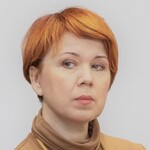
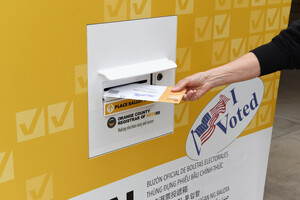
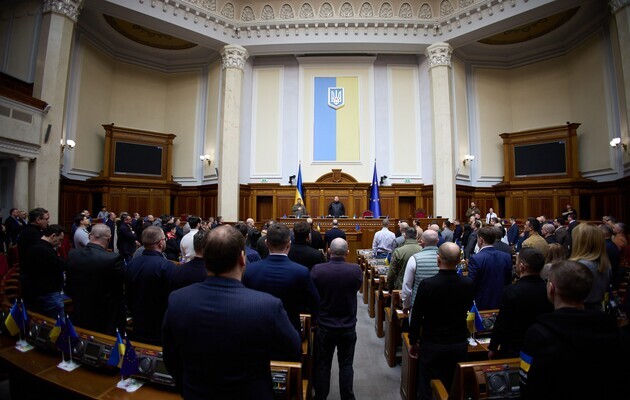
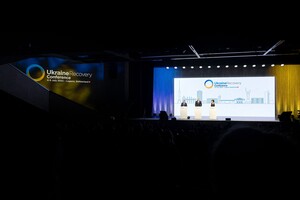
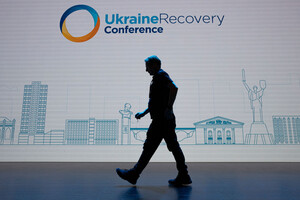
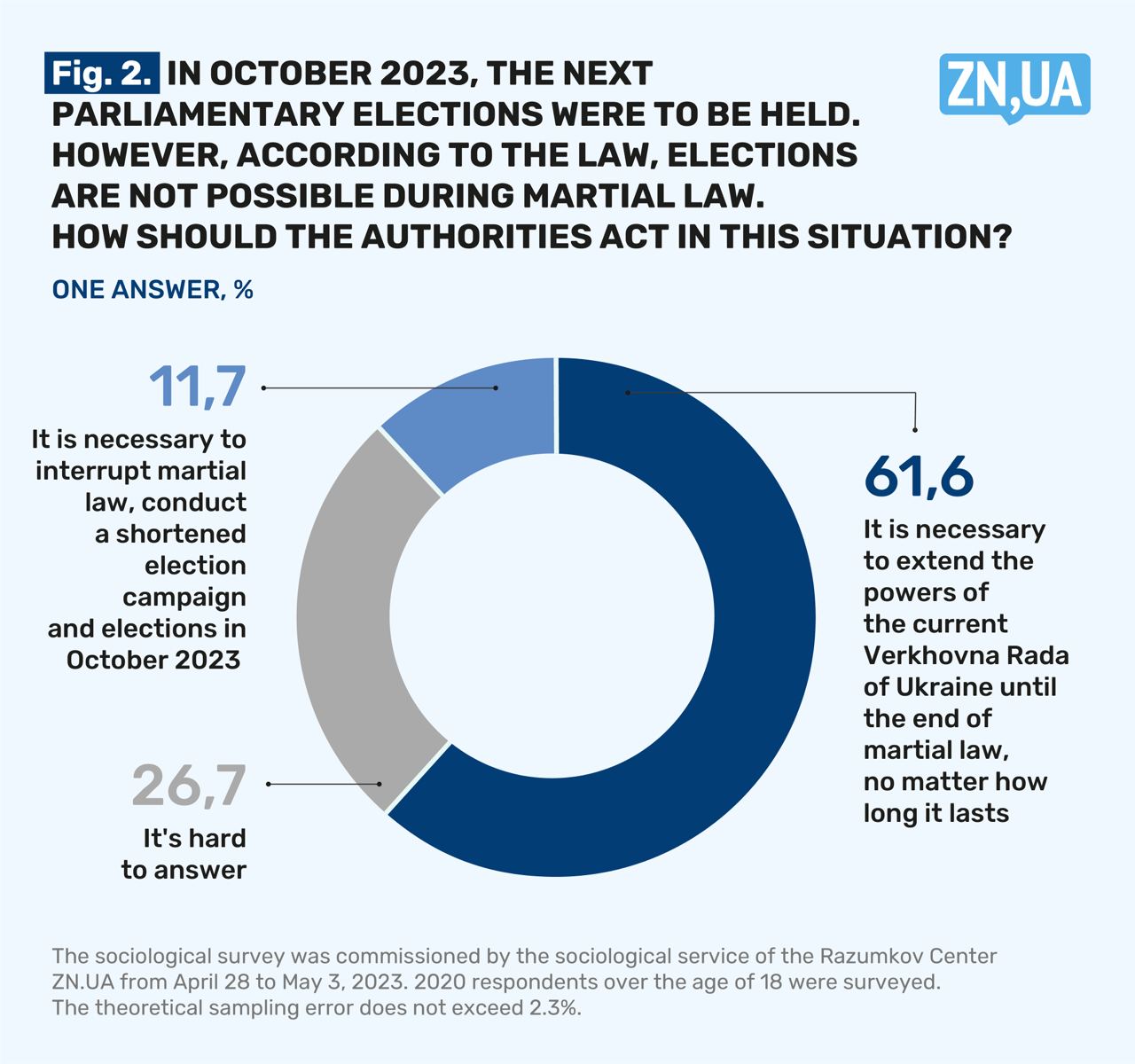
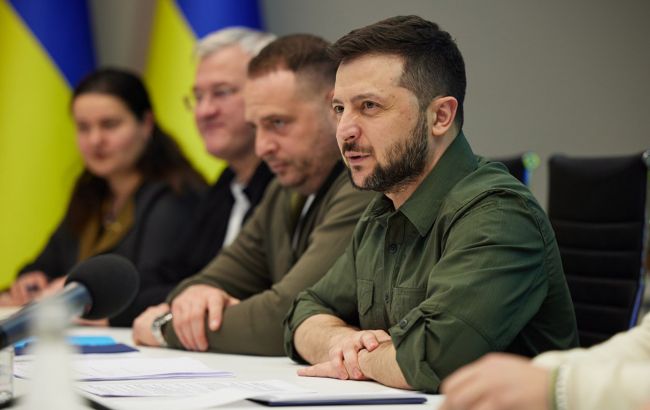
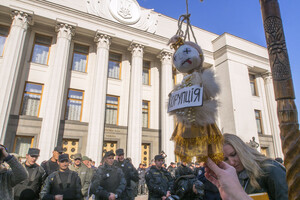
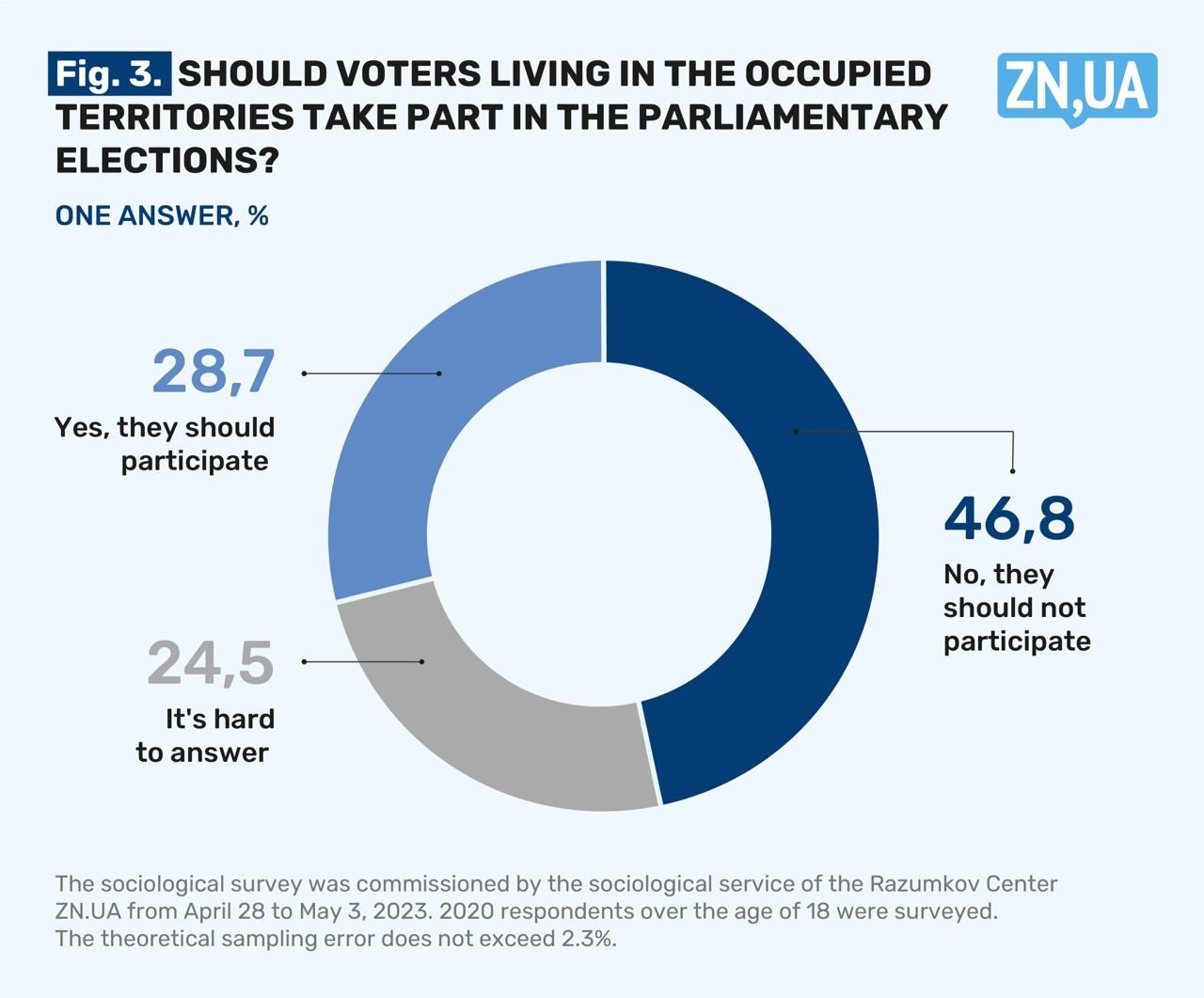
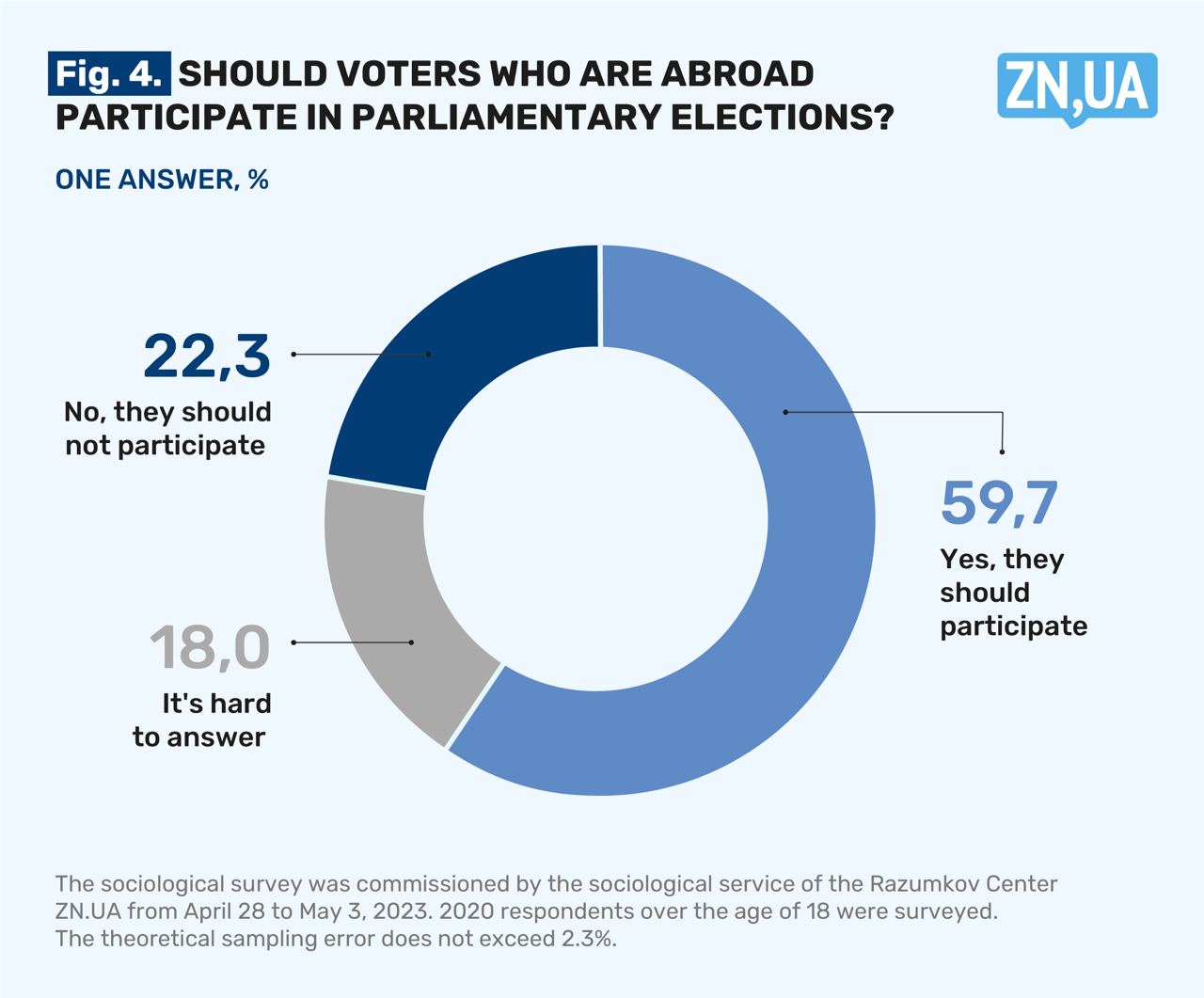
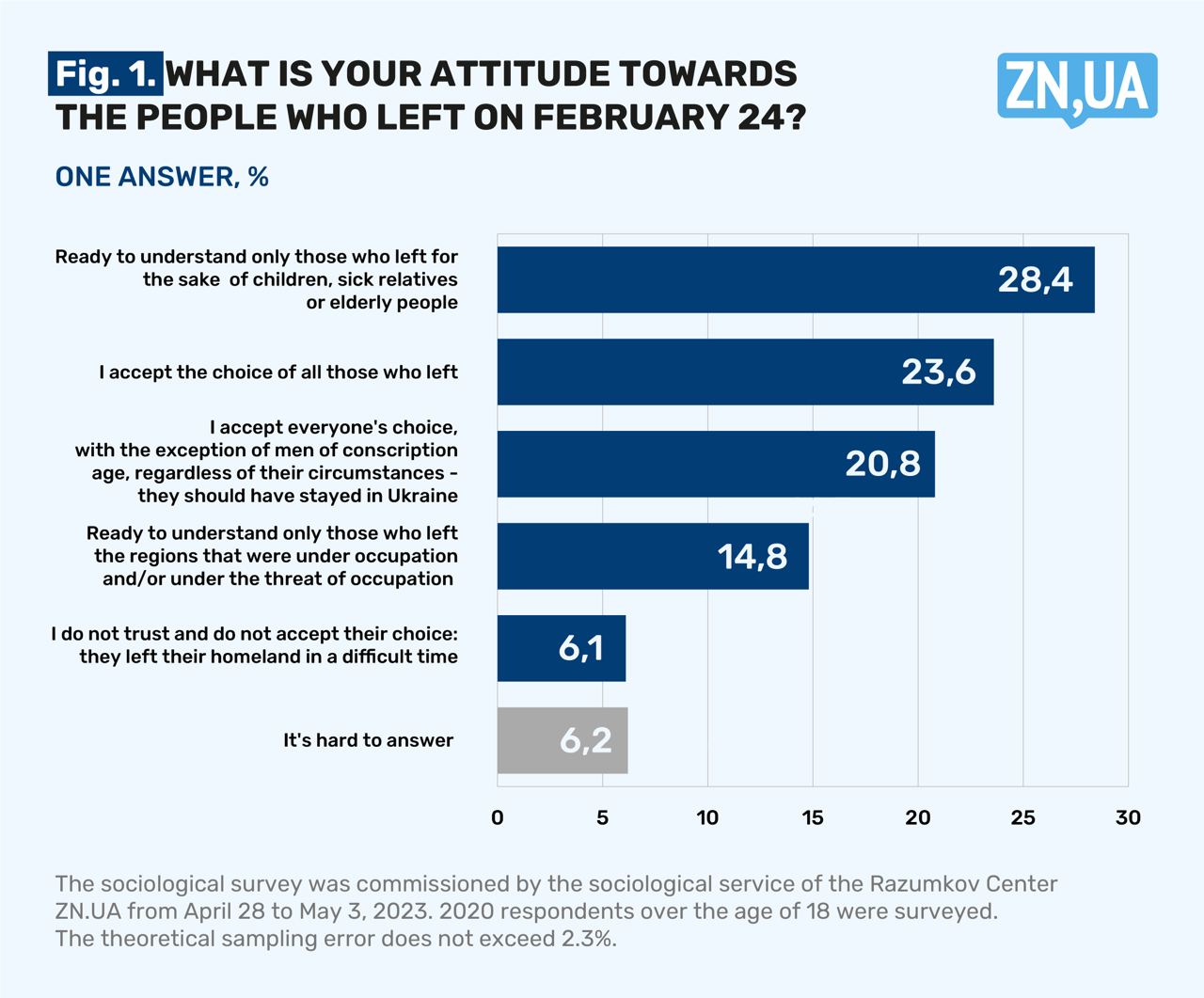

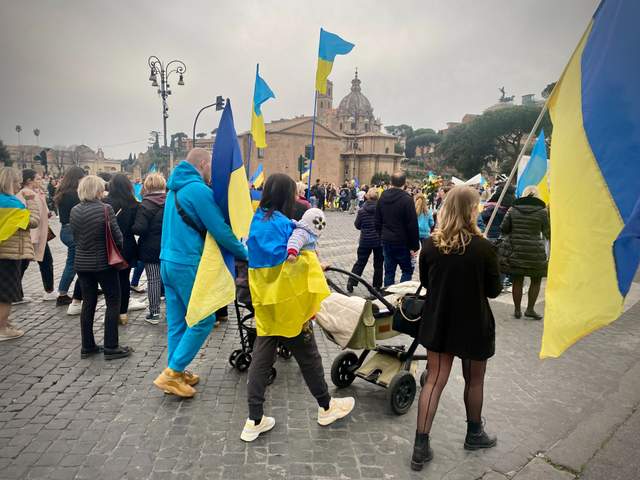

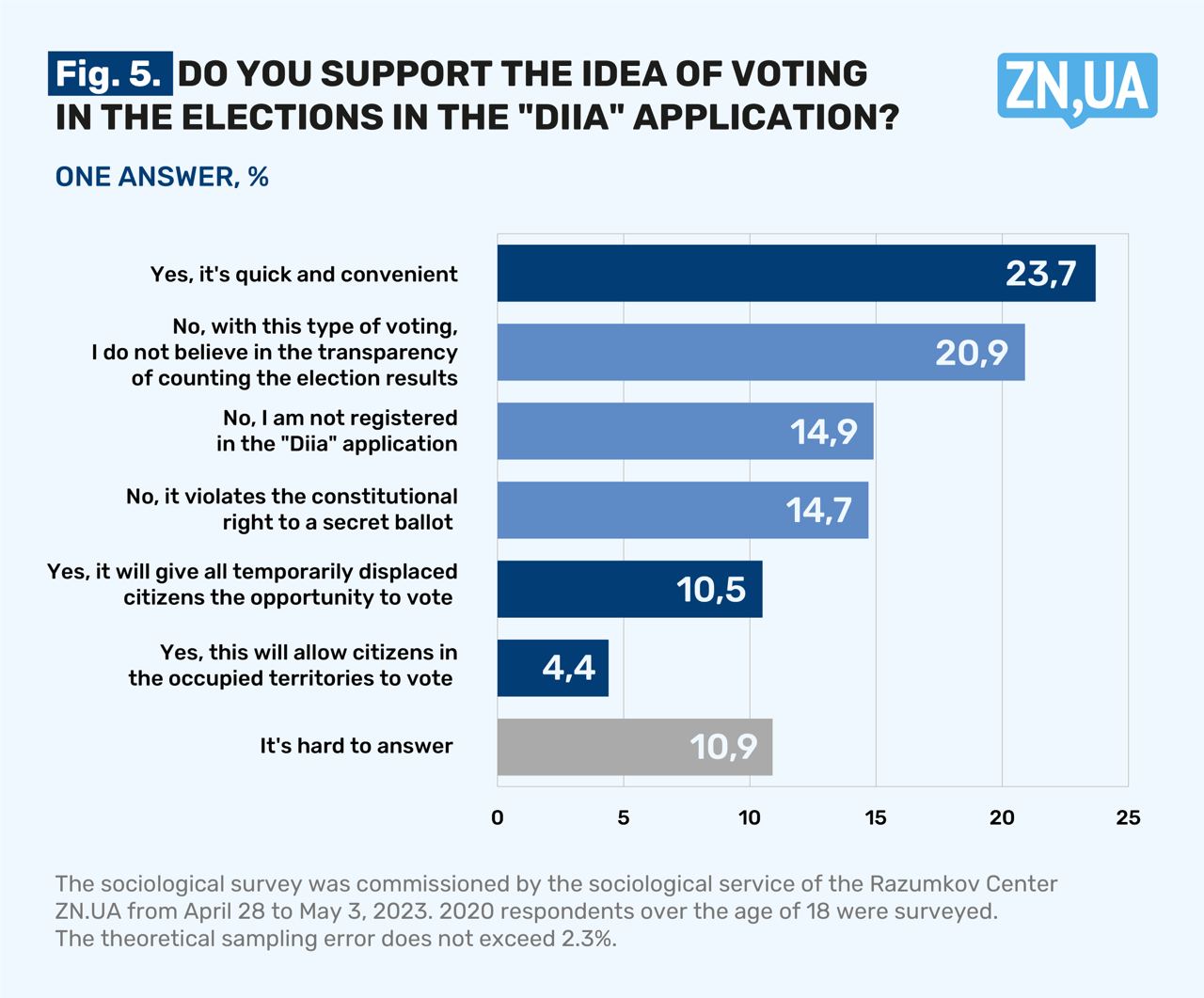
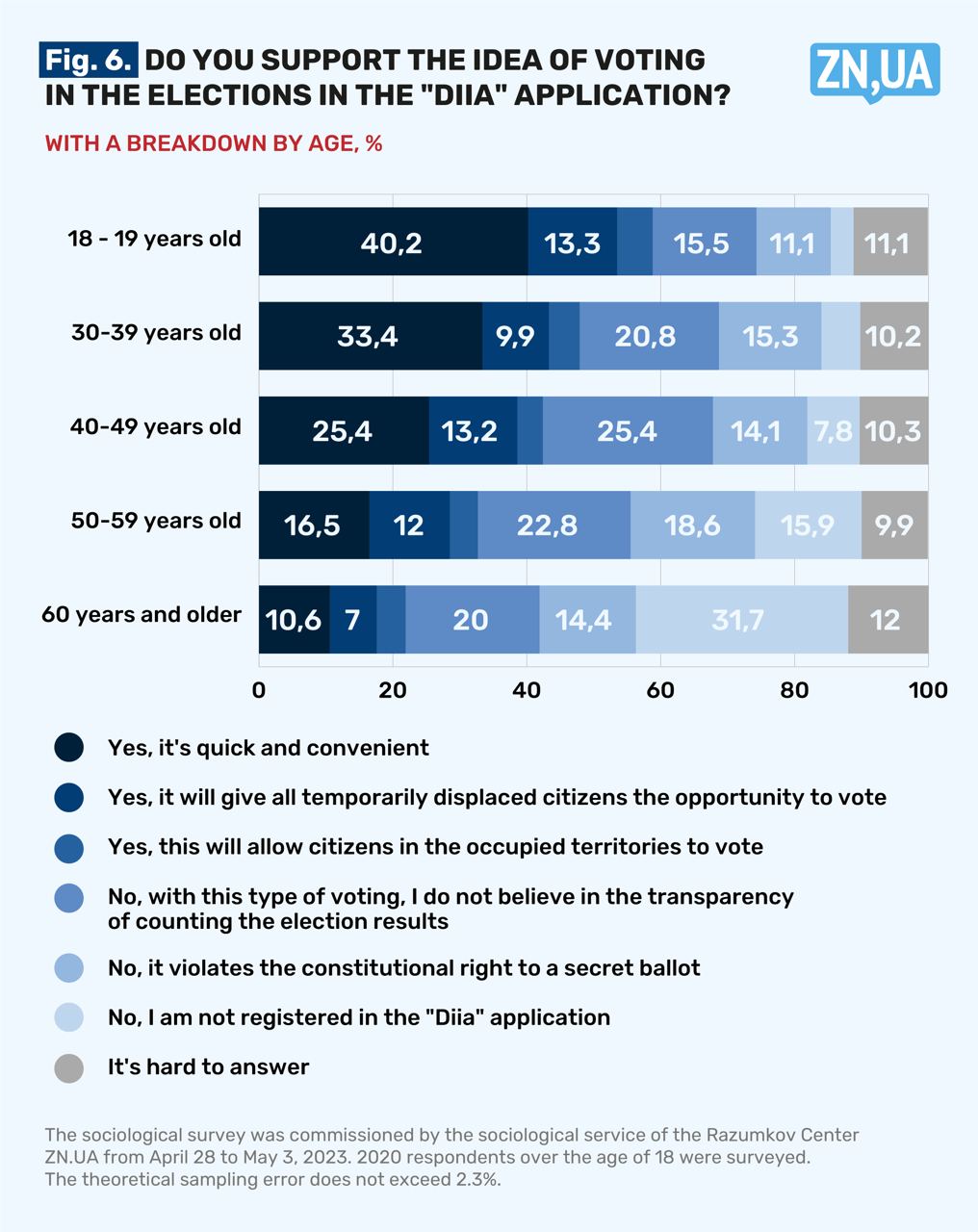

.jpg)
 Login with Google
Login with Google